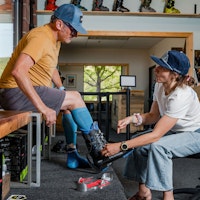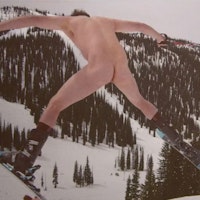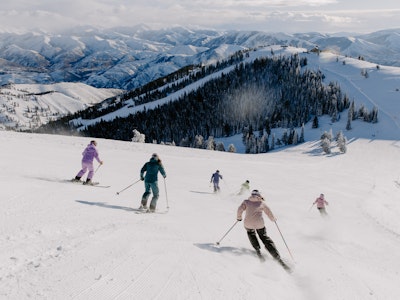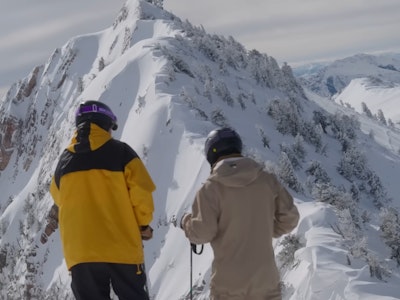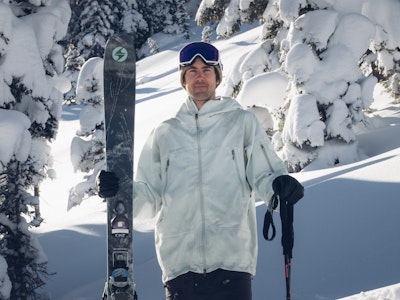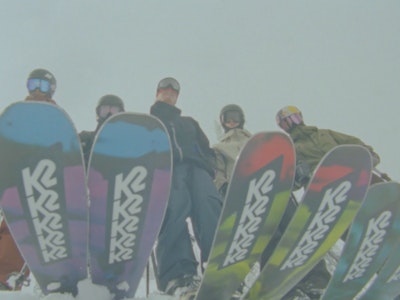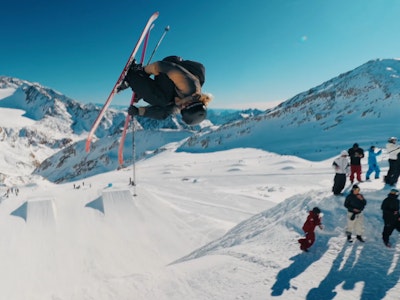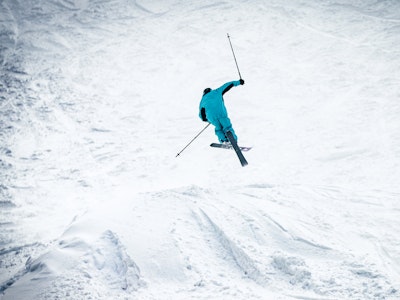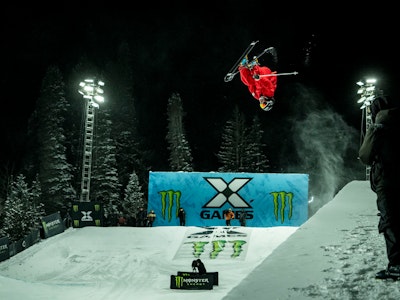The biggest buzz in competitive freeskiing for the past six months has been the recent approval to include freeski superpipe and slopestyle in the 2014 Winter Olympic Games in Sochi, Russia. It was a hard fought battle by a great number of individuals—athletes, organizers, sponsors, to name a few—and their dreams are finally coming to fruition.
The impending Olympics will most certainly be the largest stage that freeskiing has seen; a veritable launching pad for the sport to reach a broader global audience. There is no doubt that freeskiing, from a publicity standpoint, will benefit greatly from the Olympics. But is the tradeoff for this publicity costing our sport too much? It is certainly no secret that freeskiing and the Olympics have drawn many critics and skeptics, most notably because of the long-standing friction between freeskiers and FIS.
Olympic Qualifiers
The latest uproar towards FIS has been the alleged approval of the 2014 Olympics Qualifications rules for freestyle (which includes pipe, slope, aerials and moguls. Snowboarding, too). While sources at USSA say FIS has not confirmed that the 2014 Qualification rules have been officially released, they will most likely be very similar to the 2010 Qualification rules used for the Vancouver Games.
The following is what, for instance, a pro halfpipe skier will likely need to do to qualify for 2014:
-Must have accumulated a minimum of 100 FIS points in respective discipline.
-Must have finished in top 30 in World Cup or FIS World Champs event in respective discipline.
-Above requirements must be fulfilled during Olympics Qualifying Timeline
So let’s say an athlete wins a World Cup event, there's their 100 FIS points and top 30 finish. Let’s say you got 10th? You're 26 points closer, and your top 30 is taken care of. What is everyone so up in arms about? It gets more complicated because of the timeline.
The FIS World Championships that Mike Riddle won back in February? Yeah, that won't count. Riddle and co. have to have their results within the Olympics Qualifying Timeline. While the official timeline hasn't been set, it will most likely start during the summer of 2012 and end in early 2014. Leading up to 2010, the snowboarding timeline was July 2008 to January 2010.
Country-Specific Olympic Berths
Even if an athlete meets these personal FIS requirements, they still aren't guaranteed a ticket to Sochi—that just makes sure they are eligible. While it is up to individual nations to decide who they send, it's on the athletes' backs to determine how many athletes each country can send as the amount of athletes per discipline and gender is fixed. For instance, in Vancouver, 40 men and 30 women snowboarders were allowed. But despite what someone's ranking is via their FIS points, this is not how they earn a spot. Their ranking on what's called the FIS Quota Allocation List earns their country an Olympic berth. Each country can earn a maximum of four spots, per discipline, per gender. For instance, if USA has four athletes in the top 40 of the Quota Allocation List, then they can send four athletes to the Olympics. However, if USA only has three athletes in the top 40, then they can only send three athletes.
For countries like USA, Canada, Sweden, and other wintersport-centric nations, it will most likely not be a problem earning four spots. But what about countries like Australia, who have been almost wholly represented by Russ Henshaw and Anna Segal the past couple seasons? The fact that Australia doesn't have the depth to send others to FIS World Cups to earn the Aussies a few spots means Russ—and skiers from similarly affected countries—will have to make time in their busy schedules to not only qualify themselves, but their countries as well. While this sort of situation might be normal in racing, it's very peculiar in a sport that has almost always has been exclusively about the individual. "The last five years I have been representing myself," says Henshaw. "Now that the Olympics come into play I will be representing a country. It definitely felt weird [at the World Champs]."
World Cups versus X Games and Winter Dew Tour
While these issues don't sound that bad for pro skiers that regularly globetrot to events, they are a cause for concern. The biggest issue is a potential event calendar conflict. With an already full competition calendar within the Olympic timeline, what if some deserving athletes still haven't met their Olympic quotas, or their country hasn’t earned its fair share of spots? Is it right for FIS to make the athletes add more events to an already busy season?
"I guess we will have to see what happens as things move forward," says FIS Slopestyle World Champ and X Games Big Air gold medalist Alex Schlopy. "If events do begin to conflict, then some tough choices will have to be made, and that's just how it is. The Olympics are a huge opportunity for us and I think events that can get you there will take precedence over some of the others." It makes athletes have to make a decision between those that have supported them (sponsors, established events) and a shot at the Olympics. "I really hope it doesn't come to that," adds Henshaw. "I still want to do the events that are at the core of our sport but at the same time I want to represent my country at the Olympics."
So why can't FIS just make a Winter Dew stop or the X Games a World Cup event? The best events we've got now surely meet FIS standards, right? Not quite. The first problem is that most of the big events are North American-based. It is unfair to ask international competitors to travel here for a shot at Olympic glory. Also, Dew, X, Euro X, WSI, etc. aren't open events. All World Cup events (for pipe and slope) are currently completely open to any and all, staying true to the Olympic spirit that anyone can technically become an Olympian. Also, to be considered a WC event, the event has to provide—amongst a laundry list of other things—lodging, nutritional food and a minimum prize purse. Here is what Chris Prybylo, the general manager of the Winter Dew Tour, had to say on the subject:
"The Winter Dew Tour is working and communicating with the winter action sports industry leaders, athletes and events to build a Tour that reflects everyone’s best interests. The Winter Dew Tour stages first class events and provides an industry-leading media platform with exposure for the industry through its sports, athletes and brands. As the landscape continues to evolve, we’re always open to collaborating with other organizations to create a positive outcome for the industry as a whole and specifically the athletes."
So, in theory, an event like a Winter Dew Tour stop could become a World Cup, but it’s not very likely. The Dew Tour or the X Games wouldn't be the Dew Tour or the X Games if they changed to comply to FIS regulations. They are the way they are for a reason.
What’s next?
While on the Snowboard side, the TTR and FIS seem to have been unable to reach an agreement on working together to mitigate problems like the potential calendar conflicts, things on the ski side are looking a little brighter. The AFP and FIS worked together at the 2011 Freestyle World Championships in Park City, UT, which "really opened the door for communication between the AFP and FIS," says Michael Spencer, Vice President of the AFP. "I think that has really spurred a lot of open dialogue and communication between us about moving forward and making this as seamless as possible for the athletes."
While it's early to say how much advisement FIS takes from the AFP, the organization seems to have built up a fair amount of goodwill, and until FIS finds a way to communicate with the greater freeskiing community, the AFP is the sport's liaison, looking out for the athletes’ best interests.
The potential calendar conflict is the first of many hurdles to overcome on the road to the Olympics. Issues like judging, course standardization and individual national team decisions are necessary discussions as we move towards Sochi. But for now, can skiers feel hopeful for the work that has been done by the AFP? Or should the industry brace itself for yet another FIS letdown? "On the freeskiing side, I have seen a lot of good things," says Jeremy Forster, Director of US Snowboarding and US Freeskiing at USSA. "In the past it might have been easy to criticize some of the things FIS has done in our sports, but my sense is the cooperation is there."
Ultimately, the FIS should strive for transparency in their rules, regulations and workings. It's a new space for them and a new frontier for us, so why not start fresh and work together to build something that will benefit all? Love it or hate it, the Olympics are coming and this article is meant to be a catalyst for athletes and interested parties to become educated on the entire process so that we, as skiers, can control our destiny.
Do you think the Olympic qualification process is fair? Let us know in the comments section below.
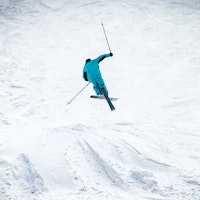
![[GIVEAWAY] Win a YoColorado X Coors Banquet & Liberty Skis Prize Package](https://www.datocms-assets.com/163516/1769630228-pastedgraphic-3.png?w=200&h=200&fit=crop)
